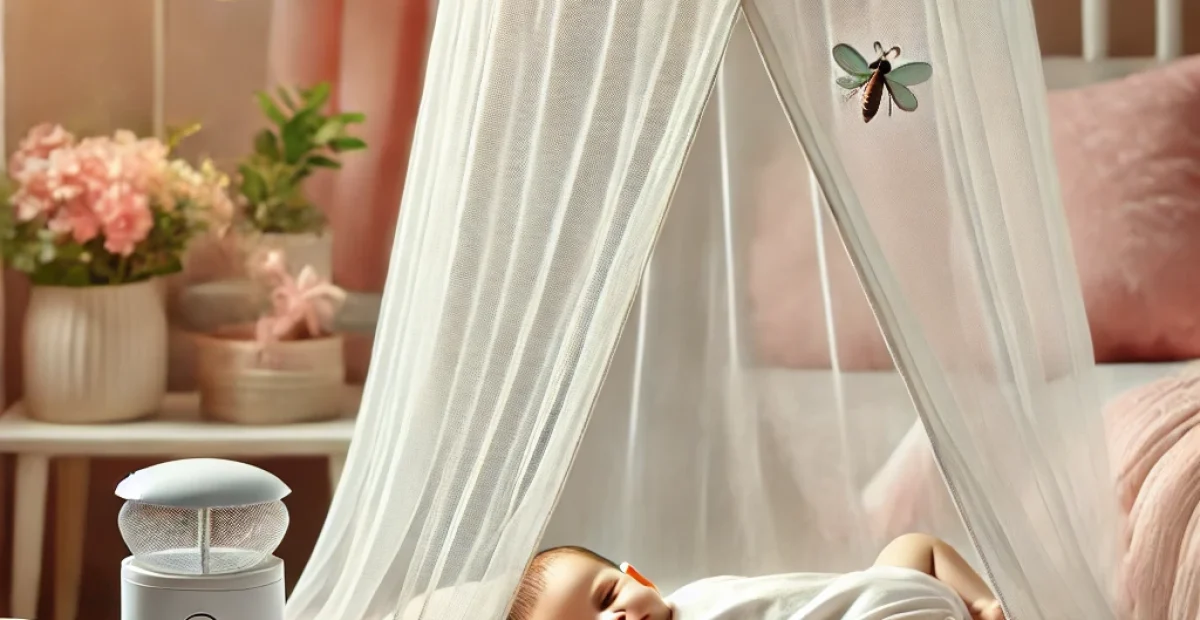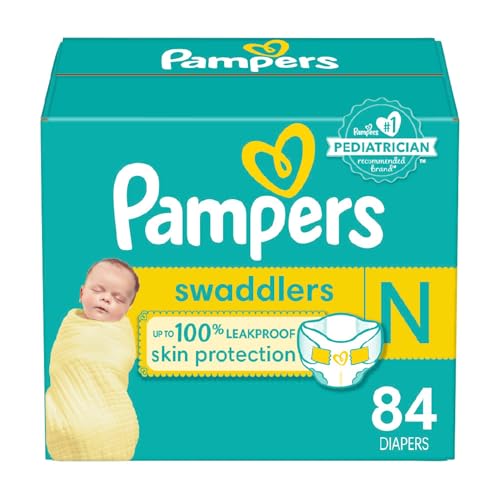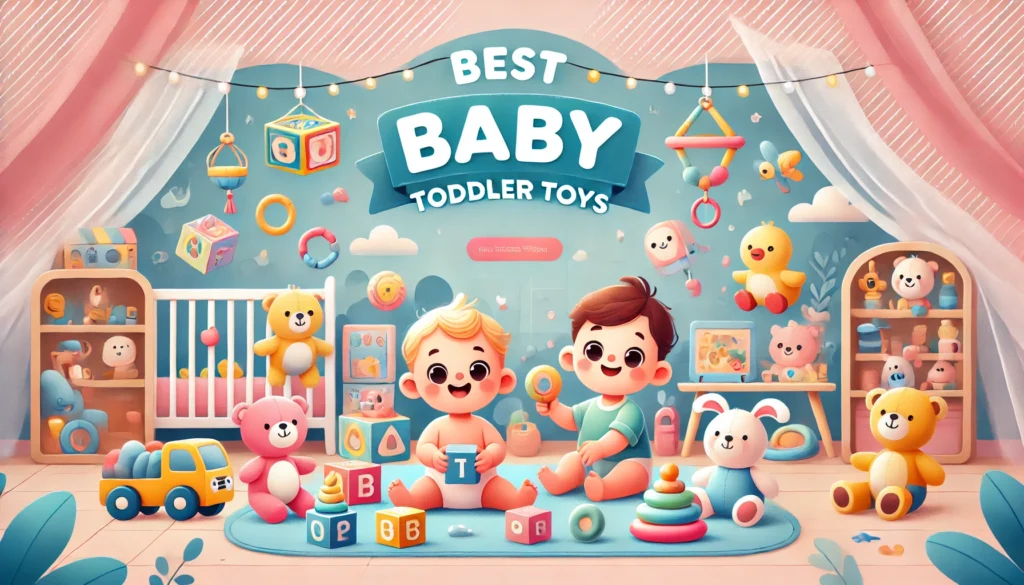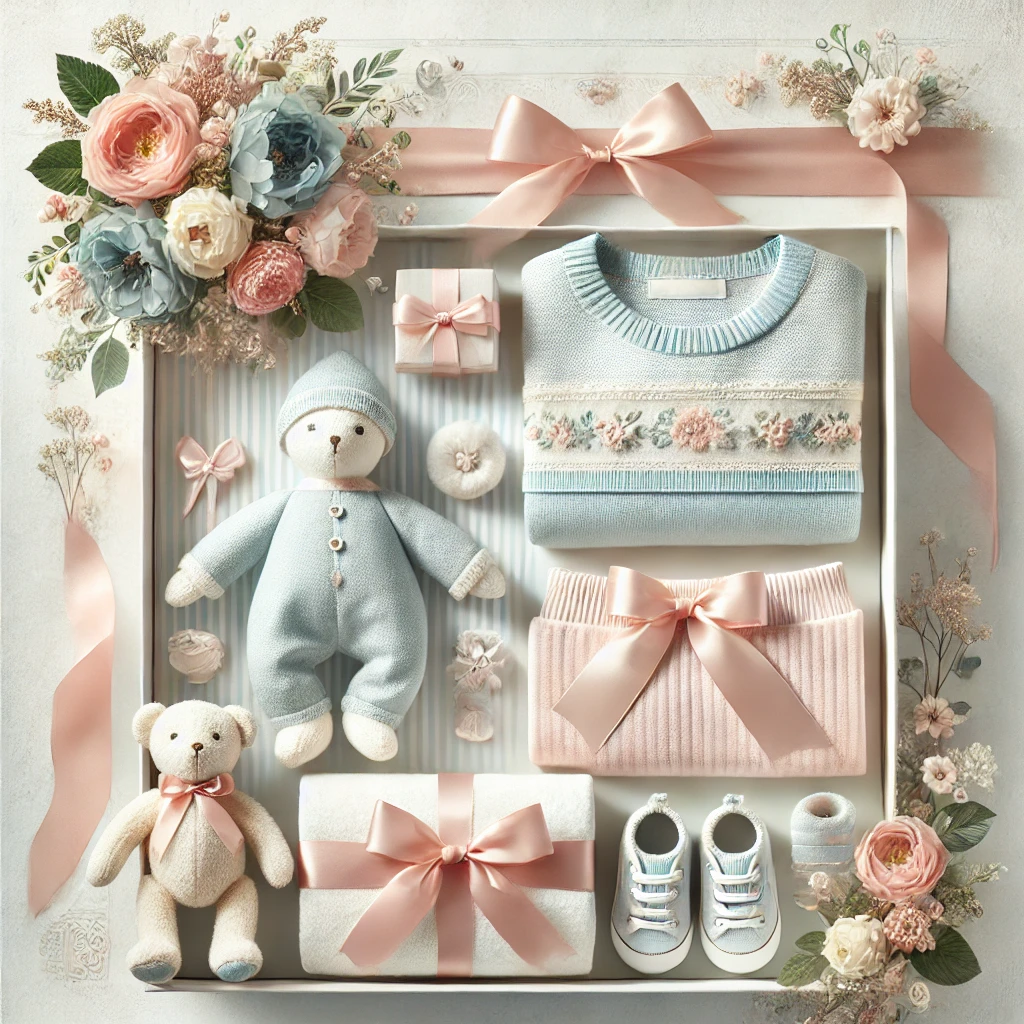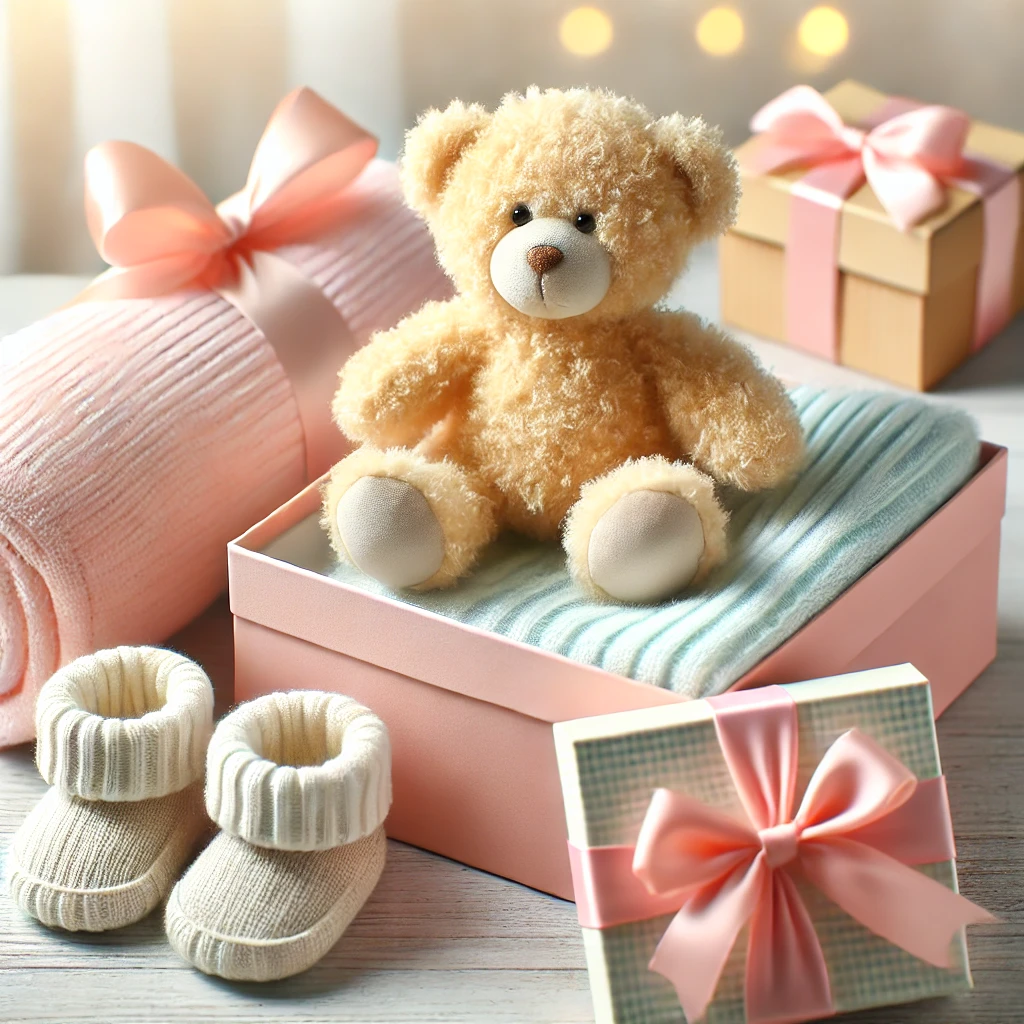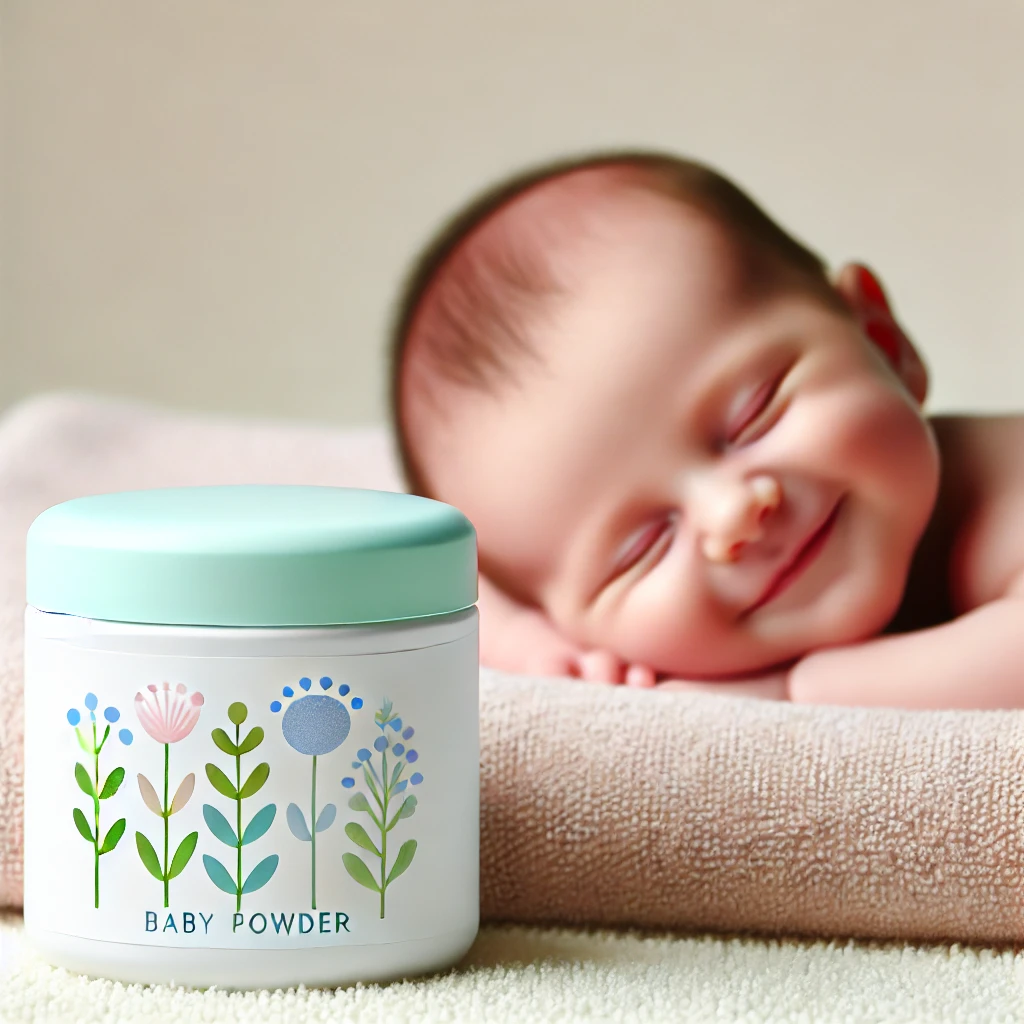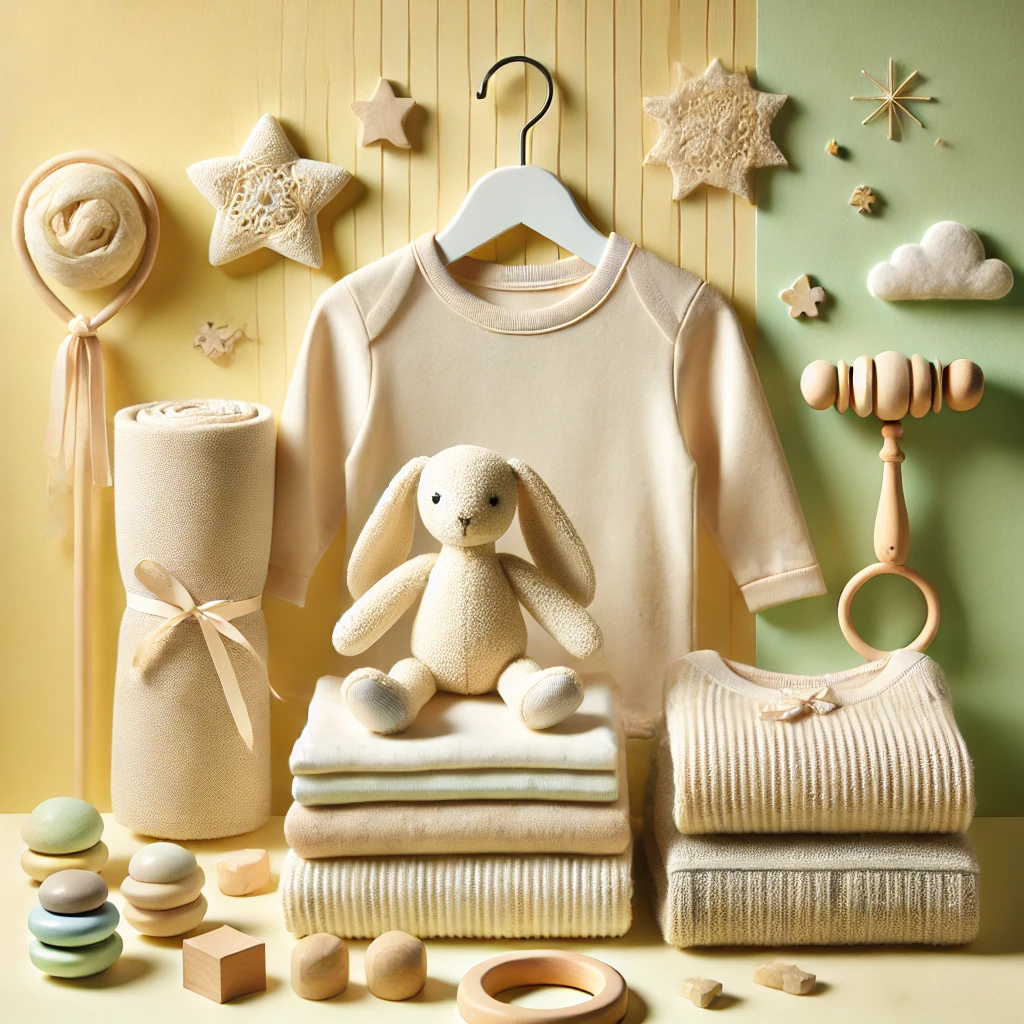Mosquitos can be a serious threat to your baby’s health. Their bites cause discomfort and may spread diseases.
Protecting your baby from mosquitos is crucial. These tiny pests can cause big problems, from itchy bites to serious illnesses. Parents must stay vigilant, especially during mosquito season. Babies have sensitive skin and weaker immune systems, making them more vulnerable.
Understanding the risks and taking preventive measures can ensure your baby stays safe and comfortable. This guide will help you learn how to protect your baby effectively. Let’s explore practical tips and solutions to keep those pesky mosquitos at bay. Your baby’s safety and well-being are worth every effort.
Why Mosquitoes Matter
Protecting your baby from mosquitoes is crucial. These tiny pests are more than just annoying; they can carry diseases that pose serious risks to health. Understanding why mosquitoes matter helps in taking the right steps to keep your little one safe.
Health Risks
Mosquito bites can lead to several health problems, especially for babies. Their immune systems are still developing, making them more vulnerable to infections. Here are some of the common health risks:
- West Nile Virus: This virus can cause fever, headache, and body aches. In severe cases, it can lead to neurological diseases.
- Zika Virus: Zika is especially dangerous for pregnant women. It can cause birth defects in unborn babies.
- Malaria: Though less common in some regions, malaria can be severe, causing high fever, chills, and even death if untreated.
- Dengue Fever: Symptoms include high fever, severe headache, pain behind the eyes, joint and muscle pain.
Babies who are bitten by mosquitoes may also experience allergic reactions. These can range from mild skin irritation to more serious conditions like anaphylactic shock. Keeping the baby safe from mosquitoes is essential to prevent these health issues. Ensure your baby sleeps under a mosquito net and apply baby-safe mosquito repellents.
Environmental Impact
Mosquitoes play a role in the environment, even though they are often seen as pests. Understanding their impact helps in managing their population without harming the ecosystem. Here’s how they affect the environment:
- Food Chain: Mosquitoes serve as food for many creatures. Fish, birds, and insects rely on them for sustenance.
- Pollination: Some mosquito species help in pollinating plants, contributing to plant reproduction.
- Population Control: Mosquito larvae compete with other insects for resources. This competition helps keep the insect population balanced.
Although mosquitoes are a part of the ecosystem, their population needs to be controlled to prevent diseases. Using environmentally friendly methods like natural predators and habitat management can keep mosquito numbers low. Avoid stagnant water near your home as it is a breeding ground for mosquitoes. Keeping the environment clean and free from standing water helps in reducing mosquito populations.

Identifying Mosquito Breeding Sites
Protecting your baby from mosquitos is crucial to keep them safe from mosquito-borne diseases. One effective way to do this is by identifying and eliminating mosquito breeding sites around your home. Understanding where mosquitos lay their eggs helps reduce their population and ensures your baby’s safety.
Stagnant Water
Mosquitos love stagnant water. They lay their eggs in still water, which makes it a prime breeding ground. Identifying and removing stagnant water sources is a key step in mosquito control. Common sources of stagnant water include:
- Flower pots and saucers
- Bird baths
- Clogged gutters
- Old tires
- Pools and ponds without proper maintenance
It’s important to check these areas frequently. Empty and clean containers that collect water. Ensure gutters are clear of debris. If you have a pond, consider adding fish that eat mosquito larvae. Use pool covers to keep water clean and change bird bath water regularly.
| Source | Action |
|---|---|
| Flower pots | Empty and clean regularly |
| Bird baths | Change water every few days |
| Gutters | Keep clear of leaves and debris |
| Old tires | Dispose of or store in a dry place |
| Pools | Use covers, keep chlorinated |
Dense Vegetation
Mosquitos thrive in dense vegetation. They seek out shaded, humid areas with plenty of cover. Managing your yard’s vegetation can help reduce their hiding spots. Tips for managing dense vegetation:
- Trim bushes and shrubs regularly
- Keep grass short
- Remove weeds and overgrown plants
- Clear away fallen leaves and debris
- Plant mosquito-repellent plants like lavender and marigolds
Regular yard maintenance is key. By keeping vegetation trimmed and tidy, you reduce mosquito hiding spots. This makes your yard less attractive to mosquitos, keeping your baby safer. Consider creating a barrier of mosquito-repellent plants. These plants not only look nice but also deter mosquitos with their natural scents. Some effective plants include:
- Lavender
- Marigold
- Citronella grass
- Catnip
- Basil
Using these tips, you can create a safer environment for your baby by reducing mosquito breeding sites. Regular maintenance and vigilance are key to keeping mosquitos at bay.
Effective Repellents
Mosquitos are more than just a nuisance. They can pose a real threat to your baby’s health. Using effective repellents is crucial to protect your baby from these tiny invaders. Let’s explore both natural and chemical solutions to keep your little one safe and comfortable.
Natural Options
Natural mosquito repellents are a great choice for parents who prefer eco-friendly solutions. These options are gentle on your baby’s skin and free from harsh chemicals. Here are some effective natural repellents:
- Lemon Eucalyptus Oil: This is one of the most effective natural repellents. It offers protection for up to three hours.
- Lavender Oil: Not only does it repel mosquitos, but it also has a calming effect. A few drops can be mixed with carrier oil and applied to your baby’s skin.
- Neem Oil: Known for its antiviral and antibacterial properties. Mix it with coconut oil for application.
- Citronella: This oil is often used in candles and sprays. It masks the scents that attract mosquitos.
Using these oils can be both safe and effective. Here is a quick table for easy reference:
| Natural Repellent | Duration of Protection | Application Method |
|---|---|---|
| Lemon Eucalyptus Oil | 3 hours | Mix with carrier oil and apply |
| Lavender Oil | 2-3 hours | Mix with carrier oil and apply |
| Neem Oil | 4-5 hours | Mix with coconut oil and apply |
| Citronella | 2 hours | Use in candles or sprays |
Remember to always do a patch test on a small area of your baby’s skin to ensure there are no allergic reactions.
Chemical Solutions
Chemical repellents are often more potent and provide longer-lasting protection. They are especially useful in areas with a high mosquito population. Some commonly used chemical repellents include:
- DEET: This is one of the most effective mosquito repellents. It’s safe for babies older than two months when used in concentrations of 10-30%.
- Picaridin: It is as effective as DEET. It is less greasy and has a mild odor.
- IR3535: This repellent is effective and has been used in Europe for many years. It’s safe for babies when used as directed.
- Permethrin: This chemical is used to treat clothing and gear. It is not for direct application on the skin.
Here’s a table summarizing these options:
| Chemical Repellent | Duration of Protection | Application Method |
|---|---|---|
| DEET | 5-8 hours | Apply directly to the skin |
| Picaridin | 8-10 hours | Apply directly to the skin |
| IR3535 | 4-8 hours | Apply directly to the skin |
| Permethrin | Several weeks (on clothing) | Treat clothing and gear |
When using chemical repellents, follow the instructions carefully. Do not apply them to your baby’s hands, eyes, or mouth. Always wash your baby’s skin with soap and water after coming indoors.
Protective Clothing
Protecting your baby from mosquitos is crucial, especially in areas where mosquito-borne diseases are common. One effective way to keep these pests at bay is by using protective clothing. This approach not only provides a physical barrier but is also safe for your baby’s delicate skin. Let’s explore the best fabric choices and color considerations to ensure your little one stays bite-free.
Fabric Choices
Choosing the right fabric for your baby’s clothing can make a significant difference in preventing mosquito bites. Here are some important factors to consider:
- Lightweight and Breathable: Fabrics like cotton and linen are ideal. They allow air circulation, keeping your baby cool while providing a barrier against mosquitos.
- Tight Weave: Opt for materials with a tight weave. These fabrics have smaller gaps, making it harder for mosquitos to penetrate. Examples include tightly woven cotton and synthetic blends.
- Moisture-Wicking: Fabrics that wick moisture away from the skin can keep your baby dry and comfortable. Polyester and nylon blends are good choices.
| Fabric Type | Benefits |
|---|---|
| Cotton | Breathable, soft, and comfortable |
| Linen | Lightweight and cool |
| Polyester Blends | Moisture-wicking and durable |
Ensure the clothing is loose-fitting. Tight clothes can stretch and leave gaps, allowing mosquitos to bite. Also, consider clothing with long sleeves and pants to cover more skin.
Color Considerations
The color of your baby’s clothing can also impact mosquito attraction. Mosquitos are drawn to certain colors more than others. Here’s what you need to know:
- Light Colors: Choose light-colored clothing like white, beige, or pastel shades. These colors are less attractive to mosquitos.
- Avoid Dark Colors: Dark colors such as black, navy, and red can attract mosquitos. These colors absorb more heat, making your baby a more noticeable target.
- Bright Colors: Bright colors like yellow and orange can also attract mosquitos. Stick to more muted tones to reduce the risk.
| Color | Attraction Level |
|---|---|
| White | Low |
| Beige | Low |
| Pastel Colors | Low |
| Black | High |
| Red | High |
Dressing your baby in the right colors can significantly reduce mosquito bites. Pairing light-colored clothing with protective fabrics creates an effective barrier against these pesky insects.
Creating A Mosquito-free Zone
Protecting your baby from mosquitos is vital for their health and comfort. Creating a mosquito-free zone around your home ensures your baby is safe from bites. By focusing on yard maintenance and screening windows and doors, you can significantly reduce the risk of mosquito exposure for your little one.
Yard Maintenance
Maintaining your yard is the first line of defense against mosquitos. These pests breed in standing water and hide in overgrown vegetation. Here are some crucial steps to keep your yard mosquito-free:
- Eliminate Standing Water: Check for and remove any standing water. This includes bird baths, flower pots, buckets, and tires. Mosquitos can breed in as little as a teaspoon of water.
- Clean Gutters: Ensure gutters are clean and free of debris. Clogged gutters can hold water, providing a breeding ground for mosquitos.
- Trim Vegetation: Keep grass short and trim bushes and shrubs. Mosquitos rest in cool, damp areas, so reducing vegetation helps limit their hiding spots.
- Use Mosquito-Repellent Plants: Consider planting mosquito-repellent plants such as lavender, marigolds, and citronella in your yard. These plants can help deter mosquitos naturally.
Regular yard maintenance is essential. A well-maintained yard not only looks good but also helps keep mosquitos at bay. Make it a routine to check for any potential mosquito breeding grounds and address them promptly.
Screening Windows And Doors
Screening windows and doors is another effective way to keep mosquitos out of your home. Proper screens can prevent these pests from entering and biting your baby. Follow these tips to ensure your screens are effective:
- Install Quality Screens: Use fine mesh screens on all windows and doors. Ensure they are free of holes and tears. High-quality screens provide a barrier that mosquitos cannot penetrate.
- Check for Gaps: Inspect the edges of screens for any gaps. Even small gaps can allow mosquitos to enter. Use weather stripping or caulk to seal any gaps.
- Screen Doors: Ensure all doors have a screen door in addition to the main door. This provides an extra layer of protection.
- Repair Damaged Screens: Regularly check screens for damage and repair any holes immediately. Use a screen patch kit to fix small holes or replace the entire screen if needed.
Keeping windows and doors screened effectively blocks mosquitos from entering your home. This simple step can make a big difference in protecting your baby from mosquito bites. Regular checks and maintenance of screens are essential for ensuring their effectiveness.

Safe Outdoor Practices
Protecting your baby from mosquitos is essential, especially during outdoor activities. Safe outdoor practices help ensure your little one stays bite-free and comfortable. Here are some effective strategies to protect your baby from mosquitos while enjoying the great outdoors.
Timing Of Outings
Choosing the right time for outdoor activities can significantly reduce the risk of mosquito bites. Mosquitos are most active during dawn and dusk. Planning your outings outside these peak times helps protect your baby. Consider these tips for optimal timing:
- Early morning and late afternoon: These times are generally safer as mosquitos are less active.
- Midday: Although it can be hotter, mosquitos are less likely to be active.
- Avoid dusk and dawn: These are peak mosquito activity times, posing a higher risk.
Check local weather and mosquito activity forecasts before planning your outing. Some regions may have higher mosquito activity due to recent rains or specific seasons. Here is a table summarizing the best and worst times for outdoor activities:
| Time of Day | Mosquito Activity |
|---|---|
| Early Morning | Low |
| Midday | Very Low |
| Late Afternoon | Low |
| Dusk | High |
| Dawn | High |
Choosing Locations
Where you choose to spend time outdoors is crucial. Some areas are more prone to mosquitos than others. Avoid areas with standing water. Mosquitos breed in stagnant water, making these spots high-risk. Consider these guidelines when choosing a location:
- Parks and open fields: These areas typically have fewer mosquitos compared to wooded or marshy regions.
- Playgrounds: Ensure they are well-maintained and free of standing water.
- Urban areas: Mosquito activity is often lower in urban settings with less vegetation.
Check for any local advisories about mosquito activity. Some areas might have treatments or mosquito control measures in place, making them safer. Here is a table to help identify safe and risky locations:
| Location | Mosquito Risk |
|---|---|
| Parks | Low to Moderate |
| Open Fields | Low |
| Wooded Areas | High |
| Marshy Areas | Very High |
| Urban Playgrounds | Low |
By selecting the right time and location for your outings, you can significantly reduce the risk of mosquito bites and ensure a safer, more enjoyable experience for your baby.
Using Mosquito Nets
Protecting your baby from mosquito bites is crucial. Mosquitoes can carry dangerous diseases. One effective way to keep your baby safe is by using mosquito nets. These nets provide a physical barrier between your baby and the mosquitoes. They are easy to use and very effective.
Types Of Nets
There are several types of mosquito nets available. Each type has its own benefits. Understanding the different types will help you choose the best one for your baby. Bed Nets: These nets are designed to cover a crib or a bed. They are usually large and provide full coverage.
- Classic Bed Nets: These are large nets that drape over the entire bed. They are great for full coverage.
- Pop-Up Nets: These nets are easy to set up. They spring into shape and can be placed directly over the bed.
Stroller Nets: These nets are smaller and designed to fit over a stroller. They are perfect for when you are outside with your baby.
- Universal Stroller Nets: These nets can fit most strollers. They are easy to attach and remove.
- Custom Stroller Nets: These nets are made for specific stroller models. They offer a snug fit.
Playpen Nets: These nets cover playpens. They allow your baby to play safely without the risk of mosquito bites.
| Type of Net | Use | Benefit |
|---|---|---|
| Bed Net | Crib or Bed | Full Coverage |
| Stroller Net | Stroller | Portable |
| Playpen Net | Playpen | Safe Play Area |
Installation Tips
Installing mosquito nets correctly is important. Improper installation can leave gaps for mosquitoes to enter. Follow these tips to ensure your net is secure. Bed Nets:
- Attach the net to the ceiling or a frame above the bed.
- Ensure the net drapes down to the floor. Tuck it under the mattress.
- Check for any gaps. Adjust the net if necessary.
Stroller Nets:
- Place the net over the stroller. Make sure it covers all sides.
- Secure the net with the provided clips or elastic bands.
- Check the net regularly. Ensure it stays in place during your walk.
Playpen Nets:
- Place the net over the playpen. Ensure it covers the entire area.
- Secure the net to the sides of the playpen.
- Make sure there are no gaps. Adjust as needed.
Using these tips will help keep your baby safe from mosquito bites. Proper installation ensures the net is effective. Always check the net to make sure it is secure.
Monitoring And Reporting
Protecting your baby from mosquitoes is crucial. Mosquito bites can cause discomfort and transmit diseases. Monitoring and reporting mosquito activity in your area can help you keep your baby safe. By staying informed and vigilant, you can take proactive measures to minimize risks.
Local Mosquito Control
Local mosquito control programs are essential for reducing mosquito populations. These programs often provide valuable information and services to the community. Here are some ways you can benefit from them:
- Information and Education: Local agencies often share tips on how to prevent mosquito breeding around your home. They may offer guidance on removing standing water, which is a common breeding ground.
- Spraying and Treatment: Some areas may have regular mosquito spraying schedules. Knowing these dates can help you plan outdoor activities for your baby accordingly.
- Community Reporting: Many local programs encourage residents to report mosquito sightings. This helps them target problem areas more effectively.
To stay updated, you can:
- Visit your local health department’s website.
- Sign up for alerts from mosquito control programs.
- Follow local news for updates on mosquito activity.
By leveraging local mosquito control resources, you can take informed steps to protect your baby from mosquito bites.
Health Alerts
Health alerts play a critical role in keeping your family safe. These alerts can provide timely information about mosquito-borne diseases in your area. Here’s how you can stay informed:
- Subscribe to Alerts: Many health departments offer email or SMS alerts for disease outbreaks. Subscribing ensures you receive important updates quickly.
- Check Online Resources: Websites like the Centers for Disease Control and Prevention (CDC) provide up-to-date information on mosquito-borne diseases.
- Follow Social Media: Health organizations often use social media to share alerts and tips. Following these accounts can keep you informed in real-time.
Health alerts often include:
- Information about disease outbreaks.
- Symptoms to watch for in your baby.
- Precautions to take to reduce exposure.
Staying informed through health alerts helps you respond quickly to any threats. It ensures you can take the necessary steps to protect your baby from potential health risks.

Frequently Asked Questions
How Can I Keep Mosquitos Away From My Baby?
Use mosquito nets, repellents, and wear long-sleeved clothing. Keep the baby’s environment clean and free from standing water.
What Is The Best Mosquito Repellent For Babies?
Choose DEET-free repellents formulated for babies. Natural options include lemon eucalyptus oil. Always consult your pediatrician.
Are Mosquito Bites Dangerous For Infants?
Mosquito bites can cause itching and discomfort. They may also transmit diseases like Zika or West Nile virus. Protect your baby.
How To Treat Mosquito Bites On A Baby?
Clean the bite area with soap and water. Apply a cold compress. Use a pediatrician-approved anti-itch cream if necessary.
Conclusion
Protecting your baby from mosquitos is essential for their health. Use safe repellents and netting. Dress your baby in long sleeves and pants. Avoid areas with standing water. Mosquitos breed there. Keep windows and doors closed or screened. Check for any gaps.
These simple steps help keep your baby safe. Stay vigilant and proactive. Your baby deserves a mosquito-free environment. Enjoy peace of mind knowing you’re protecting them.

